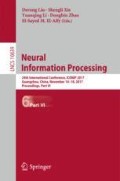Abstract
Dynamic Programming (DP) is often used in hybrid electric vehicle (HEV) energy management strategies to optimize fuel economy performance. When using the DP algorithm to find the optimal State of Charge (SOC) trajectory, we found that the optimal SOC trajectory is more than one. However, the traditional DP algorithm can just show one optimal path from masses of optimal SOC trajectories. In this paper, we proposed an improved DP algorithm to find a region which is made up of many optimal trajectories. Planetary gear hybrid electric vehicles as a research object in this paper and obtained the better fuel economy by the proposed algorithm with a lower computational complexity. At the same time, this method can offer the possibility for the further optimization of the vehicle ride comfort in the future.
Access this chapter
Tax calculation will be finalised at checkout
Purchases are for personal use only
References
Husain, I.: Electric and hybrid vehicles: design fundamentals. Circ. Dev. Magaz. IEEE 21(5), 26–27 (2005)
Chan, C.C.: The state of the art of electric and hybrid vehicles. Proc. IEEE 90(12), 247–275 (2002)
Miller, J.M.: Propulsion Systems for Hybrid Vehicles. Iet Digital Library (2004)
Barsali, S.: A control strategy to minimize fuel consumption of series hybrid electric vehicles. IEEE Trans. Energy Convers. 19(1), 187–195 (2004)
Qi, Y., Wang, W.: Neural network and efficiency-based control for dual-mode hybrid electric vehicles. In: Control Conference, pp. 8103–8108, Hangzhou (2015)
Wang, D., et al.: Optimal control of unknown nonaffine nonlinear discrete-time systems based on adaptive dynamic programming. Automatica 48(8), 1825–1832 (2012)
Pan, Y.: Study on Fuzzy Logic Based Energy Management Strategy of ISG-type Speed Coupling Hybrid Electric Vehicle Based on DP Algorithm. Chongqing University (2013)
Squartini, S., et al.: Computational energy management in smart grids. Neurocomputing 170(11), 267–269 (2015)
Perez, L., et al.: Optimization of power management in a hybrid electric vehicle using dynamic programming. Math. Comput. Simul. 73(1), 244–254 (2006)
Bellman, R.: Dynamic Programming. Princeton University Press (1957). 12(5), pp. 317–348
Kirk, D.E.: Optimal control theory. Am. Math. Monthly 83(4), 261–288 (2012)
Perez, L.V., et al.: Optimization of power management in an hybrid electric vehicle using dynamic programming. Math. Comput. Simul. 73(11), 244–254 (2006)
Vinot, E., et al.: Improvement of an EVT-based HEV using dynamic programming. IEEE Trans. Veh. Technol. 63(11), 40–50 (2014)
Shen, C.Y., et al.: Control strategy of series hybrid electric vehicle based on improved dynamic programming. Control Theory Appl. 28(3), 427–432 (2011)
Chau, K., et al.: Overview of power management in hybrid electric vehicles. Energy Convers. Manag. 43(15), 1953–1968 (2002)
Sciarretta, A., et al.: Control of hybrid electric vehicles. IEEE Control Syst. 27(12), 60–70 (2007)
Vinot, E.: Time reduction of the dynamic programming computation in the case of hybrid vehicle, pp. 1–15 (2014)
Scordia, J., et al.: Global optimization of energy management laws in hybrid vehicles using dynamic programming. Int. J. Veh. Des. 39(14), 349–367 (2005)
Jeanneret, B., et al.: New Hybrid concept simulation tools, evaluation on the Toyota Prius car. In: 16th International electric vehicle symposium, Beijing (1999)
Trigui, R., et al.: Global Forward-Backward Approach for a Systematic Analysis and Implementation, Estoril, Portugal (2004)
Acknowledgement
Supported by Jilin Province Science and Technology Development Fund (20150520115JH); Energy Administration of Jilin Province [2016]35.
Author information
Authors and Affiliations
Corresponding author
Editor information
Editors and Affiliations
Rights and permissions
Copyright information
© 2017 Springer International Publishing AG
About this paper
Cite this paper
Tang, X., Chu, L., Xu, N., Zhao, D., Xu, Z. (2017). Energy Management of Planetary Gear Hybrid Electric Vehicle Based on Improved Dynamic Programming. In: Liu, D., Xie, S., Li, Y., Zhao, D., El-Alfy, ES. (eds) Neural Information Processing. ICONIP 2017. Lecture Notes in Computer Science(), vol 10639. Springer, Cham. https://doi.org/10.1007/978-3-319-70136-3_14
Download citation
DOI: https://doi.org/10.1007/978-3-319-70136-3_14
Published:
Publisher Name: Springer, Cham
Print ISBN: 978-3-319-70135-6
Online ISBN: 978-3-319-70136-3
eBook Packages: Computer ScienceComputer Science (R0)

